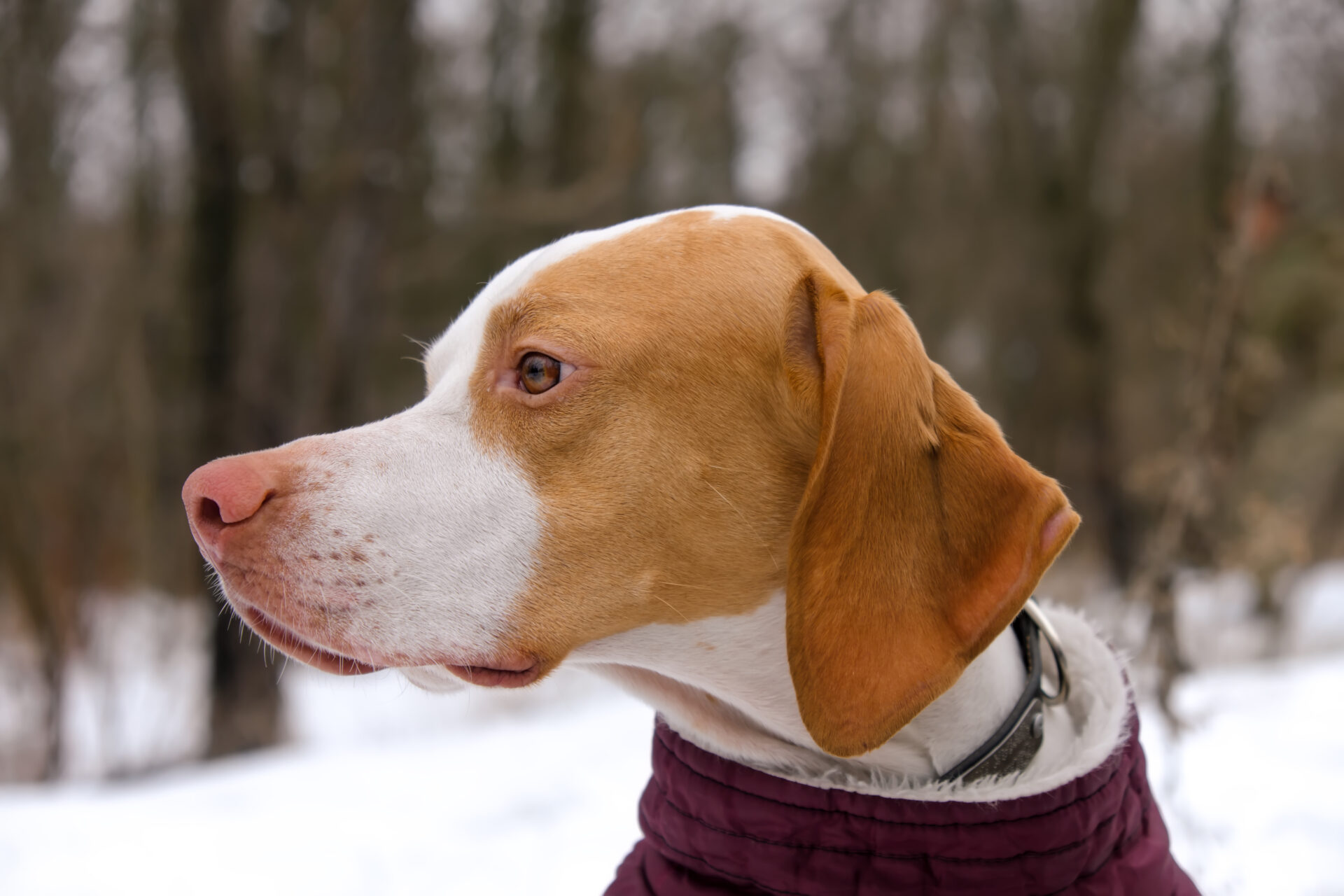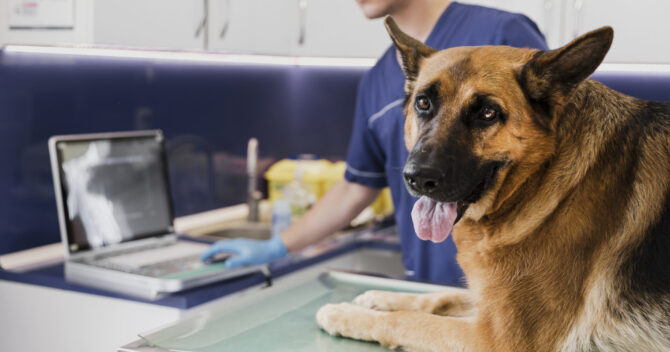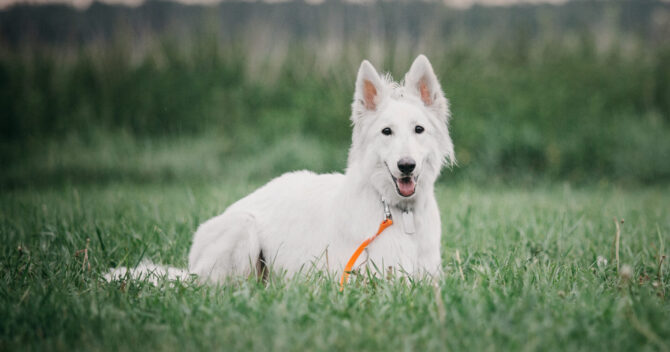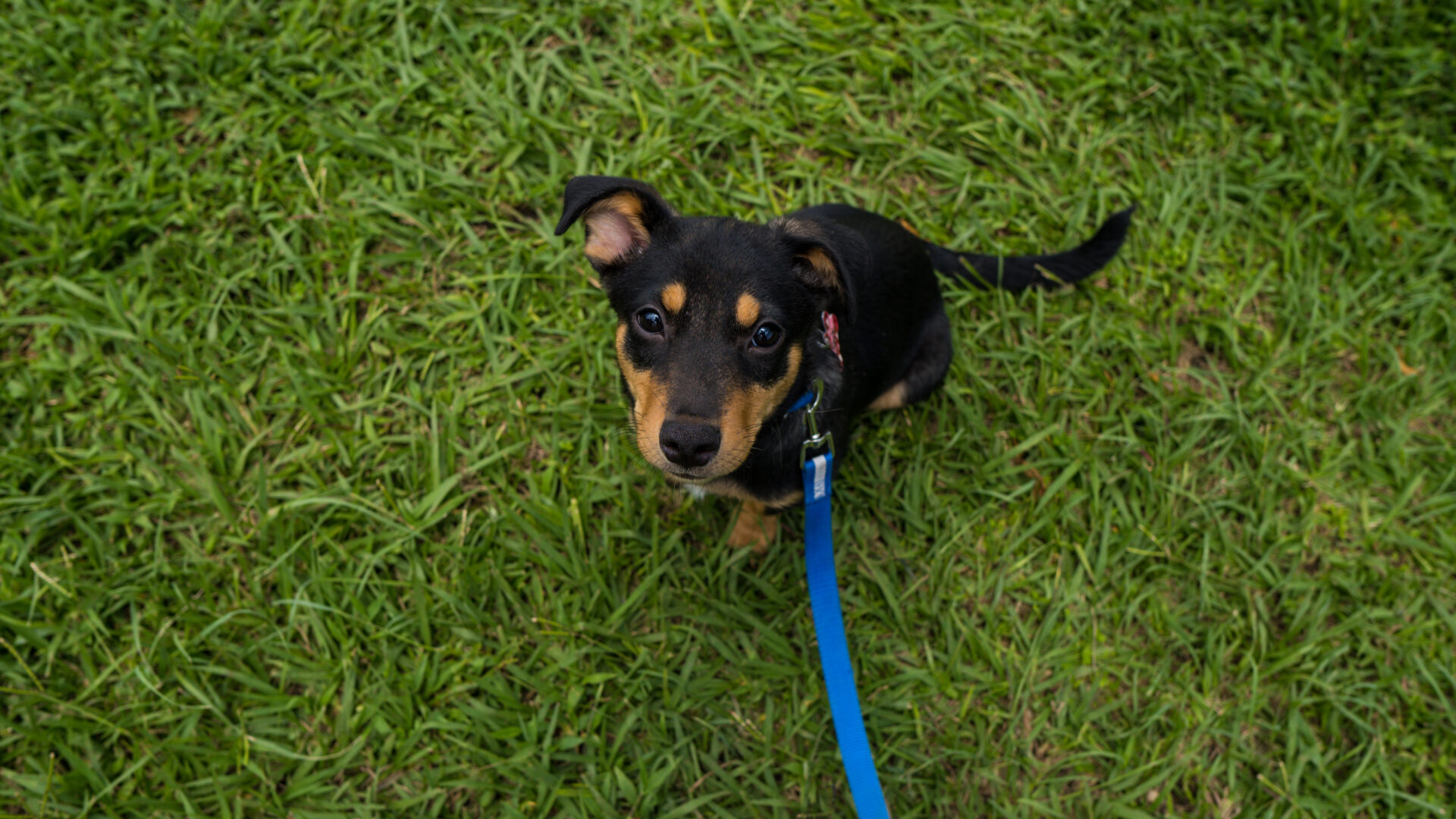Pointer - history of the breed
The Pointer is an ancient breed of hunting dog originating in Great Britain. However, according to some cynologists, his ancestors should be sought in other countries, probably in Spain, France and Italy. In order to obtain the perfect hunting dog for finding and pointing out small birds or hares, British breeders crossed the arrived left-handed dogs with strong hunting dogs, such as foxhound, bloodhound, greyhound and setter. From them, the pointer inherited endurance, a unique sense of smell, as well as extraordinary speed and agility. After tracking the game, the pointer froze in a characteristic pose, i.e. with its front paw pulled up, indicating the location of the game to the hunter. Hence the name of the breed (point means to point).
British breeders have bred the breed in its present form since 1835. The first breed standard was developed in 1937. Unfortunately, during World War II, the population of pointers decreased significantly. Numerous cultures have survived in Great Britain and the United States in particular. In Europe, cultures recovered very slowly and for this reason the modern standard was adopted only in 1970. According to the International Cynological Organization (FCI), the pointer belongs to group 7 - pointers, section 2 - British pointers.
Suggested sizes and widths of accessories for this breed of dog:
Character
The English Pointer is an intelligent and friendly dog known in particular for its excellent hunting skills. He is alert and balanced. This agile and tenacious dog has an excellent sense of smell and easily finds its way through areas that other hunting dogs would have to go through much more slowly.
Pointer needs a strong, responsible guardian whom he can fully trust. In the emotional sphere, he is very sensitive. Happiness brings him the presence of loved ones, requires a lot of love and attention. He quickly builds a strong bond with all household members, although he attaches himself to the guardian in a special way. Pointer shows a lot of patience in dealing with children. However, it is best that their mutual contacts take place under the supervision of adults. He is suspicious of strangers and loudly intervenes when someone encroaches on his territory. With other animals, he can generally create a friendly relationship, provided that he will be used to them from the time he is a puppy (although it is different with cats).
Pointer and his upbringing
Training this intelligent dog is usually easy as the pointer is extremely devoted and loves new challenges. Ideally, the dog should have received specialized hunting training. The most important thing, however, is to start learning at puppy age and combine it with impeccable socialization. Focusing on a hunting dog or city dog requires consistent behavior with great sensitivity. It must be taken into account that the pointer is an energetic dog with a great temperament. To meet his needs, he needs a significant dose of physical activity, combined with mental challenges. Pointer loves long walks and practicing dog sports, playing with a ball, fetching sticks.
Appearance
The English Pointer is an elegant and strong medium-sized dog. His body build is well-built and symmetrical. The elegant head (carried high) has a pronounced stop and a strong muzzle with expressive lips that somewhat resemble a boxer. The neck is slender and long, the back strong and muscular, and the legs long and slender. The thick tail, tapering towards the tip, is usually carried on the level of the back. Its close-fitting coat is short and smooth with a sheen. Numerous colors are allowed, the most common of which are: lemon and white, orange and white, hazel and white or black and white. One-color and three-color coats are also allowed.
Pointer and health
The diet of this energetic dog should be adapted to his level of physical activity. The Pointer, when not hunting, gains weight quickly, which should be prevented. Dogs of this breed are not considered to be particularly susceptible to diseases. The average age of representatives of this breed is about 14 years. Among the diseases that most often affect pointers, the following can be mentioned:
- hip dysplasia
- heart disease
- kidney disease, including renal amyloidosis
- skin diseases: allergy, acne, follicular dysplasia
- eye diseases such as progressive retinal atrophy (PRA) or eversion of the eyelid (etropion).
Pointer care
The pointer's short coat does not require complicated care - a simple brushing or wiping the coat with a cloth once a week is enough. A brush is very useful for combing out dead hair: rubber silicone or natural, stiff bristles. During the period of intensive shedding in autumn and winter, it is worth increasing your efforts, especially since the short, hard hair is difficult to remove from upholstery or carpet. It is recommended that you bathe your pet every four to six weeks to keep it clean and healthy. However, be careful not to dry his skin and not to increase the tendency to allergies. Appropriate shampoos for sensitive skin are helpful. Of course, as in the case of other four-legged friends, the pointer should be systematically taken care of the proper condition of ears, claws and teeth.
Interesting and worth knowing
During World War II, a pointer named Judy who was on a warship in the service of the Royal Navy warned the crew of incoming aircraft. In 1942, during the Battle of Singapore, however, the ship sank, and the dog and the surviving crew were stranded on a deserted island. The brave and dedicated pointer searched for fresh water and also defended his crew from crocodiles. In Sumatra, after being captured by the Japanese, Judy became the only dog officially registered as a prisoner of war. After returning to Great Britain (in 1946), the pointer was awarded the Dickin Medal. Judy died at the age of 14 and was given her own stone memorial in Tanzania.
Maybe you'll like it:



